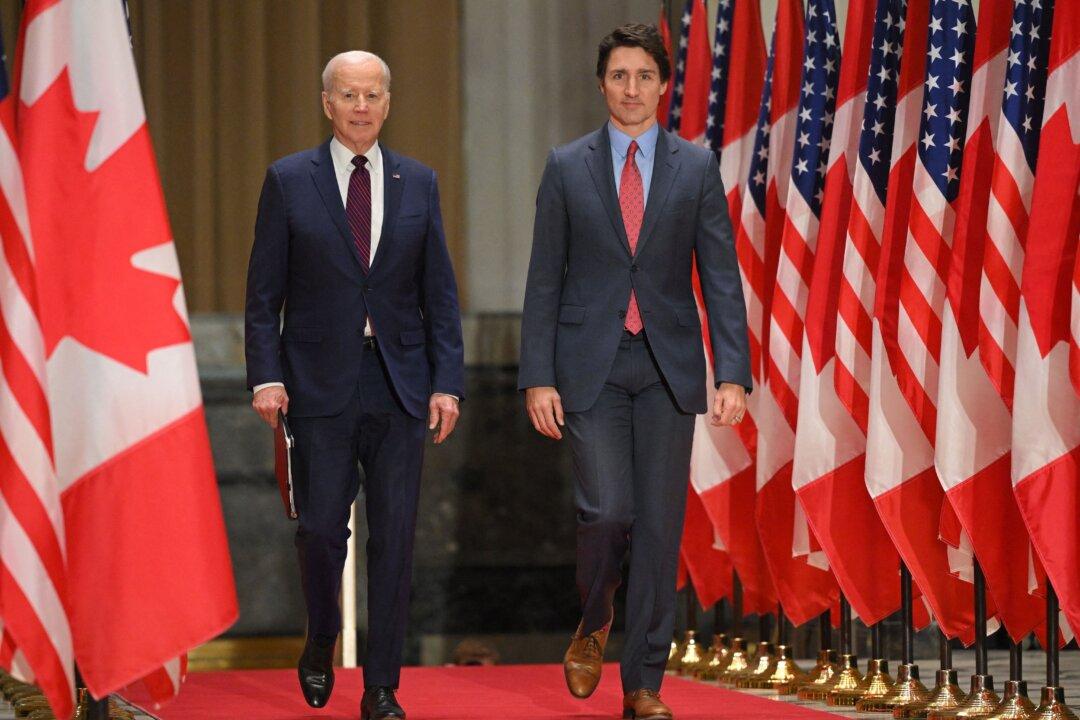OTTAWA—U.S. President Joe Biden downplayed growing Russia-China ties in Ottawa on March 24, saying that many people “exaggerate the threat” the two countries pose, and that America’s alliances have “coalesced significantly more.”
“We have significantly expanded our alliances. I haven’t seen that happen with China, Russia, or anybody else in the world,” Biden said during a press conference alongside Prime Minister Justin Trudeau.





